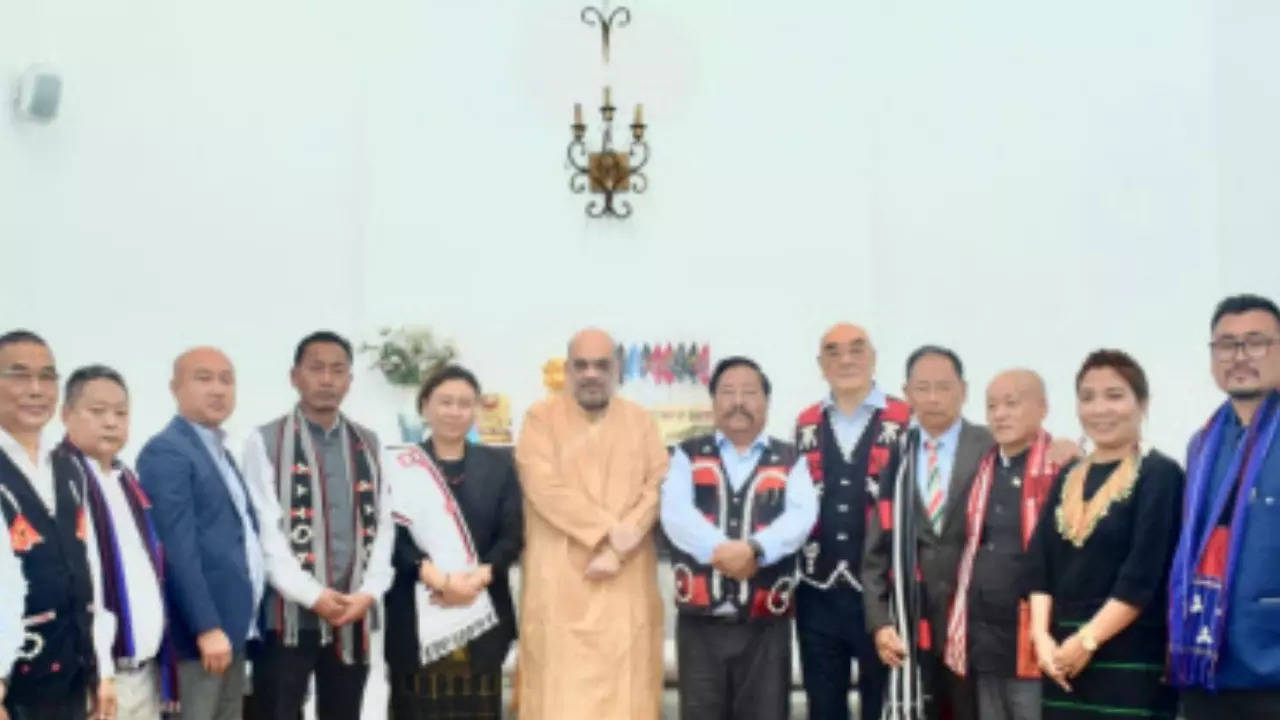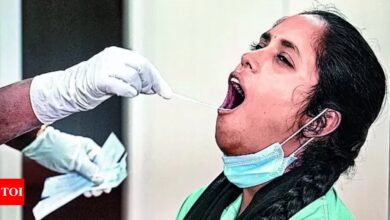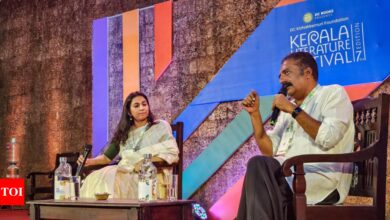India
Northeast Diary: How Centre tackled the ‘Eastern Nagaland’ issue | India News

[ad_1]
The BJP-led Centre seems to have successfully tackled a major issue that had threatened to cast a shadow over the February 27 Nagaland assembly polls. The influential Eastern Nagaland People’s Organisation (ENPO) has finally withdrawn its election boycott call following discussions with the central government’s representatives.
Neglected by successive governments, eastern Nagaland bordering Myanmar is one of the most backward regions of India. For more than a decade, ENPO had led a movement demanding a separate state, which it believed would help usher in development and prosperity in the region.
Eastern Nagaland comprising six districts — Mon, Kiphire, Longleng, Tuensang, Shamator and Noklak — is home to seven tribes, including the Konyaks, who take pride in their warrior tradition. Some of these tribes share ethnic ties with the Nagas in Myanmar.
The six districts together account for 45 percent of Nagaland’s population, but have just 20 members in the state legislative assembly. In comparison, tribes such as Ao, Angami and Sema have greater voice and representation in the political-bureaucratic domain.
In December, an ENPO delegation had met Union home minister Amit Shah in Delhi, during which he reportedly promised an amicable solution to its demand. But the BJP, which is a junior partner in the Neiphiu Rio-led coalition government in Nagaland, perhaps realized that a separate state was not feasible as it would further complicate the already-stalled Naga peace process involving the NSCN (I-M).
The rebel group, which had signed a Framework Agreement with the Modi government in 2015, stressed the need for unity among all Naga tribes for permanent solution to the Naga political issue.
Given that situation, the Centre had to devise a smart strategy while negotiating with ENPO. The ENPO reached an agreement over regional autonomy during a two-day meeting with a Home Ministry panel headed by AK Mishra, who also happens to be the Centre’s interlocutor for Naga talks, a person familiar with the matter told TOI. The talks were held in Guwahati and concluded on January 31.
This will pave the way for the creation of an autonomous council for the six districts in eastern Nagaland. ENPO leaders have demanded that development funds released by the Centre should directly reach the proposed council, and not via the state government.
While the finer details of the agreement are yet to be worked out, the ENPO on February 4 decided to withdraw its election boycott call. The umbrella body of seven tribal organisations had in August last year passed a resolution to boycott the 2023 assembly polls if its demand for ‘Frontier Nagaland’ was not fulfilled.
“Following the request of the MHA to review the August 26, 2022 resolution of ENPO and its constituent tribal bodies and frontal organisations to abstain in any election process and the subsequent assurance given by the Union Home Minister to ENPO officials on 2nd February, the ENPO… hereby relaxed the 26th August 2022 resolution with immediate effect,” ENPO was quoted as saying by local media.
Hailing the announcement, Union home minister Amit Shah tweeted, “It is heartening that in an expression of trust in the Modi government, the Eastern Nagaland Peoples Organisation (ENPO) in Nagaland has withdrawn its call to boycott the assembly elections. The decision will help in keeping the ongoing process of peace & development unhindered.”
Some observers believe the Modi government will attempt to settle as many pending issues as possible before the 2024 national elections. With the Centre attaching high priority to the northeast, an autonomous council for eastern Nagaland could soon become a reality.
Neglected by successive governments, eastern Nagaland bordering Myanmar is one of the most backward regions of India. For more than a decade, ENPO had led a movement demanding a separate state, which it believed would help usher in development and prosperity in the region.
Eastern Nagaland comprising six districts — Mon, Kiphire, Longleng, Tuensang, Shamator and Noklak — is home to seven tribes, including the Konyaks, who take pride in their warrior tradition. Some of these tribes share ethnic ties with the Nagas in Myanmar.
The six districts together account for 45 percent of Nagaland’s population, but have just 20 members in the state legislative assembly. In comparison, tribes such as Ao, Angami and Sema have greater voice and representation in the political-bureaucratic domain.
In December, an ENPO delegation had met Union home minister Amit Shah in Delhi, during which he reportedly promised an amicable solution to its demand. But the BJP, which is a junior partner in the Neiphiu Rio-led coalition government in Nagaland, perhaps realized that a separate state was not feasible as it would further complicate the already-stalled Naga peace process involving the NSCN (I-M).
The rebel group, which had signed a Framework Agreement with the Modi government in 2015, stressed the need for unity among all Naga tribes for permanent solution to the Naga political issue.
Given that situation, the Centre had to devise a smart strategy while negotiating with ENPO. The ENPO reached an agreement over regional autonomy during a two-day meeting with a Home Ministry panel headed by AK Mishra, who also happens to be the Centre’s interlocutor for Naga talks, a person familiar with the matter told TOI. The talks were held in Guwahati and concluded on January 31.
This will pave the way for the creation of an autonomous council for the six districts in eastern Nagaland. ENPO leaders have demanded that development funds released by the Centre should directly reach the proposed council, and not via the state government.
While the finer details of the agreement are yet to be worked out, the ENPO on February 4 decided to withdraw its election boycott call. The umbrella body of seven tribal organisations had in August last year passed a resolution to boycott the 2023 assembly polls if its demand for ‘Frontier Nagaland’ was not fulfilled.
“Following the request of the MHA to review the August 26, 2022 resolution of ENPO and its constituent tribal bodies and frontal organisations to abstain in any election process and the subsequent assurance given by the Union Home Minister to ENPO officials on 2nd February, the ENPO… hereby relaxed the 26th August 2022 resolution with immediate effect,” ENPO was quoted as saying by local media.
Hailing the announcement, Union home minister Amit Shah tweeted, “It is heartening that in an expression of trust in the Modi government, the Eastern Nagaland Peoples Organisation (ENPO) in Nagaland has withdrawn its call to boycott the assembly elections. The decision will help in keeping the ongoing process of peace & development unhindered.”
Some observers believe the Modi government will attempt to settle as many pending issues as possible before the 2024 national elections. With the Centre attaching high priority to the northeast, an autonomous council for eastern Nagaland could soon become a reality.
#Northeast #Diary #Centre #tackled #Eastern #Nagaland #issue #India #News






